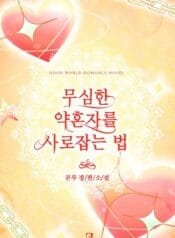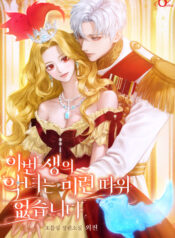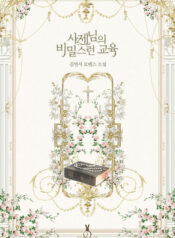“Eight dresses and twelve sets of accessories have been ordered,” Enoch reported, unable to hide his expression of disbelief. “For a five-day Harvest Festival, no less.”
“….”
Enoch’s face revealed open disdain, as though he were confronting a loathsome but ultimately trivial beast rather than a formidable monster.
Ruben idly tapped his finger on the bill resting on his desk. Compared to his subordinate’s seething frustration, Ruben was calm, showing no emotional disturbance.
“With that amount of money, our territory could last six months—”
“Enough.”
Ruben quietly silenced Enoch before he could finish venting his anger.
It wasn’t as though they could back out of this now. Given who they were dealing with, no amount of persuasion would work, and there was no stopping her. Extreme extravagance was practically Helia’s trademark. Her actions were well within expectations, and getting angry over every instance was pointless.
“She’s someone fully capable of doing this.”
“But this is beyond excessive.”
“You already knew that,” Ruben replied dismissively, signing the bill without hesitation. Duke of Effenberg’s signature engraved itself onto the document like a seal.
Enoch glared at the signature as if it were a mark of shame. And indeed, it was. Offering such luxury items to a royal princess as though they were groveling sycophants—if that wasn’t a disgrace, what was? Even if the amount was manageable for the Duchy of Effenberg, the very idea of this situation made his blood boil.
Ruben spoke again as though to calm him.
“Just forget it.”
“Don’t worry. We’ll recover everything,” Enoch replied sharply, his gaze glinting with resolve.
Ruben, who had resumed reviewing documents, lifted his head slightly to glance at Enoch. The young man, who generally gave off a slender and elegant impression, often showed a determination that clashed with his appearance.
“They say even Your Grace is forbidden from entering that room. And yet, whenever she emerges, her appearance changes. It’s not hard to guess what’s inside.”
No doubt the room was overflowing with hoarded luxury goods. Enoch clicked his tongue softly as if to himself.
Prompted by Enoch’s words, Ruben unconsciously imagined the room: a space packed to the brim with dazzling dresses and gem-encrusted accessories, so bright that even unlit, it might hurt the eyes. At the center, Helia would stand, wearing a satisfied smile—a scene so typical of her that it felt devoid of novelty. Compared to seeing her sick and bedridden as he had last time, this image was almost comforting.
“And, Your Grace,” Enoch continued.
Ruben nodded silently, signaling him to go on.
“It’s about the blood-stained letter sent to the Saintess last time.”
Ruben’s expression immediately darkened with displeasure.
There were extremists in every corner of the world, and this was doubly true when it came to religion. The Saintess inspired fervent devotion but also gathered a significant number of enemies. From foreign royals who resented the Bailey Kingdom to heretics who denied the divine, many saw her as an obstacle. Some individuals even dedicated their entire energy to hating her. Occasionally, such extremists sent letters filled with curses, hatred, and vile threats.
The anonymous blood-stained letter this time was one of those. It contained an absurd threat about shattering her to pieces at the Harvest Festival—hardly intimidating or coherent. Judging by its tone and lack of specific demands, it was likely the work of a lone, deranged heretic rather than an organized faction opposed to the Saintess.
People like that could never even graze a single strand of her hair. They wouldn’t dare entertain the thought if they knew how thoroughly she was guarded. Not the full extent of her security was visible—she was always under strict and impenetrable protection. After all, the Saintess, Lette, could not heal herself. This unfortunate reality was a closely guarded secret, making it all the more imperative to keep her injuries hidden from the public. As a result, she was constantly surrounded by guards.
“We plan to strengthen her protection further,” Enoch said. “We’ll double the personnel, including the covert guards, and for the Harvest Festival banquet—where immediate responses may be slower—we’ve already requested cooperation from those in attendance.”
The current security was sufficient, but extra measures were always necessary. Besides, Ruben himself could not stay by Lette’s side during the Harvest Festival. He would need to escort his fiancée, Helia—the person who might, in some ways, pose the greatest threat to Lette.
Ruben nodded silently. A heavy fatigue settled over his handsome face as though weighing him down.
✥✥✥
The Harvest Festival was a five-day event. Everyone except merchants would finish their work early on the first day and enter a four-day holiday. As the sound of the orchestra’s instruments marked the festival’s beginning late in the afternoon, elegantly dressed young men and women began to fill the streets, along with crowds of other people. Merchants proudly unveiled souvenirs and events they had prepared for the festival. Taverns and eateries bustled with people, and shops grew noisy with calls to customers. For the revelers already in high spirits, the night showed no signs of ending.
But the true Harvest Festival began on the second day. When the king delivered his celebratory speech in the central hall of the royal palace, it signaled the start of the grand banquet. Outside the palace, wine, bread, and sausages were distributed to the people. Regardless of status, everyone could eat their fill and celebrate the abundance of the Harvest Festival. It was a day to be grateful for prosperity, to forget one’s worries and concerns—if only for a moment—and to enjoy peace.
That was the true meaning of the Bailey Kingdom’s Harvest Festival.
Since the nobles’ Harvest Festival officially began on the second day, there were often people who dressed in casual clothing on the first day and wandered the streets to enjoy the festive atmosphere. These were usually young people, intoxicated by the excitement and liveliness of the commoners’ celebrations—so different from the grand banquets—returned with hearts full of exhilaration.
Of course, Helia Bailey and Ruben Effenberg were not the type to engage in such behavior. Therefore, on the festival’s first day, the Effenberg mansion remained unchanged, except for the noticeable quiet caused by the reduced number of servants who had been given leave.
On a night when the entire capital was steeped—or preparing to be steeped—in the fever of celebration, the silence surrounding the Effenberg estate felt like it belonged to another world. Joy, delight, happiness, and passion—it was as if the mansion had fortified itself with walls and iron bars to keep such sentiments from seeping in, its imposing presence appearing almost menacing.
“It’s already tomorrow.”
Helia spoke softly as Lina handed her a shawl in the quiet garden of the Star Residence, where Helia was alone, sipping tea. The autumn air was cool in the mornings and evenings. Although she had since recovered, Helia had been gravely ill not long ago, so exposing herself to the cold air without protection was ill-advised.
As Helia naturally draped the shawl Lina had offered over her shoulders, she spoke as if to herself, her gaze fixed on a distant, empty space rather than Lina.
“You look happy.”
“Yes.”
There’s no reason not to be happy. Helia murmured this with a faint smile. Naturally, the thought followed—do you really have a reason to be satisfied?—but Lina kept this question to herself.
The treatment Helia could expect at the banquet was painfully predictable. People would avert their eyes and fall silent at the sight of her, fearing even the chance of an encounter. Behind her back, unkind glances would tread on her shadow, and murmurs, longer than the music, would whisper cruel truths. Helia typically received such a reception in a noble society. And yet, she appeared genuinely happy as she awaited the Harvest Festival.
Lina could not comprehend Helia. But then again, that was nothing new. Lina had long since abandoned any attempt to understand her mistress. She felt no loyalty compelling her to do so. She merely allowed herself to vaguely imagine a life where no one understands and remains by one’s side.
“Regardless of the process.”
At the sound of her voice, Lina turned to look at Helia.
Helia’s gaze was still distant. Her golden eyes, fixed on some faraway void, looked hollow, and her faint smile seemed as hazy and fleeting as mist hovering over the water.
Instead of replying, Lina quietly reflected on the solitude a human being could endure.
“I will be happy. I’ve decided to be.”
‘I will crush the heart that rejects me and revel in my triumph. I will stand on my sacrifices to be by your side, trembling but victorious, and I will smile. Until the day it all inevitably crumbles.’






